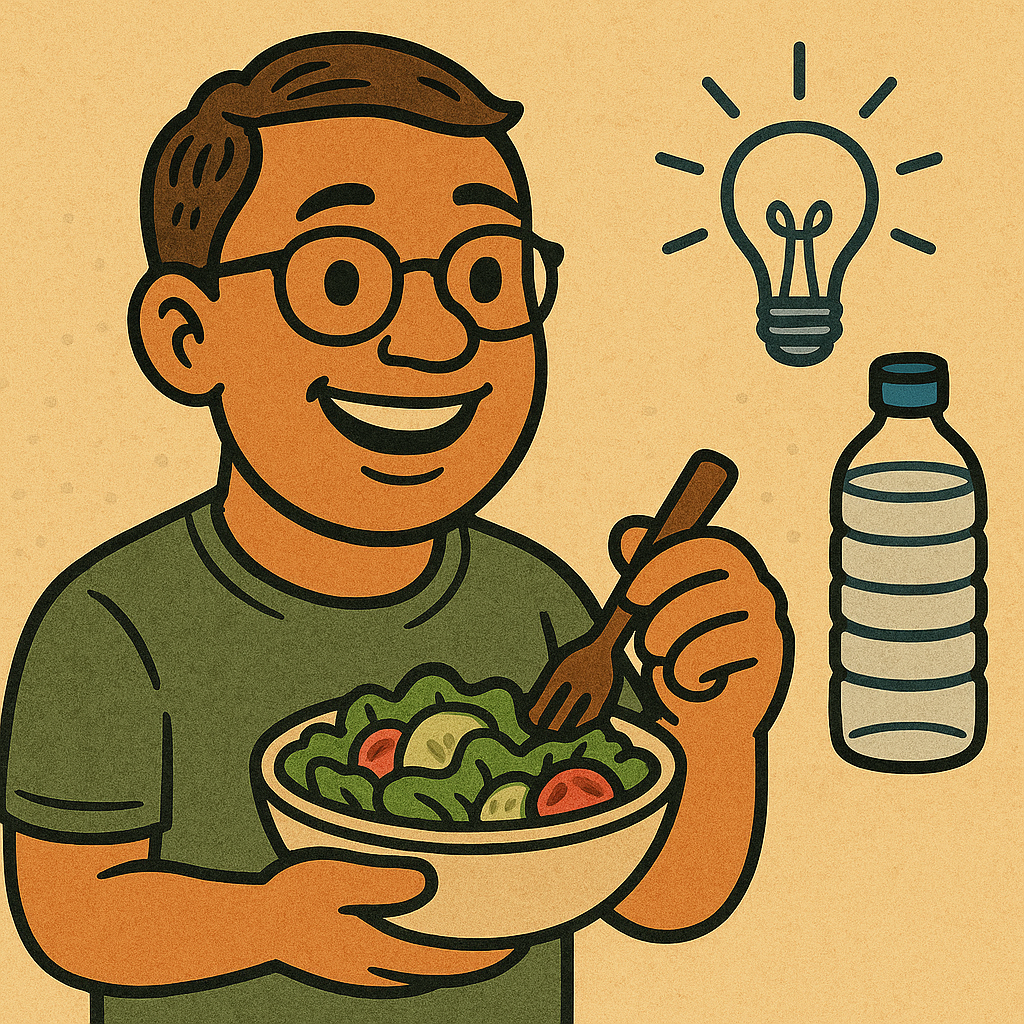For most of my life, I believed I was doing okay. I wasn’t unhealthy, exactly — but I wasn’t thriving either. Like many people, I chalked up my decreasing energy to age, stress, or “just being busy.” Then, sometime around the age of 39, I had a quiet but firm realization: I didn’t have enough energy to do the things I set out to do each day.
And that bothered me. A lot.
The Nudge I Needed
My wife played a huge role in my awakening. She kept pointing out how I would crash after meals — literally exhausted. She gently told me, more than once, “You need to change your diet.” At first, I shrugged it off. But eventually, I started to ask myself: Why am I so tired all the time? Why don’t I feel like myself?
So I did something that can be surprisingly hard: I looked at myself honestly. And I realized the truth — I had been neglecting my health.
The First Big Shift
Once that awareness set in, change followed quickly. I made major adjustments to how I ate and lived:
- I stopped eating red meat, which used to be a daily staple.
- I cut out soft drinks completely.
- I began eating salad every single day.
- I limited meat to fish or chicken once or twice a week, only when I really felt like I needed it.
- I removed all screens from the bedroom, including getting rid of the television entirely and cancelling our cable subscription.
- I stopped scrolling on my phone in bed.
Sleep improved. My digestion improved. My energy returned. I lost 3 or 4 kilos without even thinking about weight loss — just by shifting my lifestyle.
Getting Professional Guidance
At 43, I still had 2–3 kilos of stubborn fat I couldn’t seem to shake. So I reached out to a nutritionist. She helped me understand that I didn’t have to starve myself — just eat smarter. I sent her pictures of every meal I had. She gave me feedback, and I adjusted. Week by week, the results came in.
I lost 1 kilo per week consistently.
Eventually, I brought my body fat down to 16% — a number I hadn’t seen since college. But more than the numbers, I felt proud of the process. I had taken control of my health in a way I never had before.
Accountability and Ownership
Here’s what I’ve learned: accountability is everything. I no longer work with a nutritionist. But I still “report” to someone — myself. I take mental snapshots of my choices and habits. I’ve stopped outsourcing responsibility for my health. I’ve internalized it.
Because now, I understand: this is not a diet. It’s a lifestyle. It’s not temporary. It’s who I am.
Rebuilding from the Inside Out
Before I made these changes, I wasn’t happy with my self-image. I also developed high blood pressure. I was determined to bring it down — not with medication, but with lifestyle changes. And I did.
What motivated me wasn’t fear — it was love. Love for myself. A desire to feel strong, energetic, and confident in my own skin. I wanted to be someone I could admire, not just someone who looked okay in photos. I wanted to feel good inside and out.
The Most Important Lesson
When you know your “why,” everything changes.
When you truly understand why you’re doing this — not for a quick fix, not to impress anyone, but to take ownership of your life — the process becomes natural. You stop craving junk food. You stop needing a Coke or a dessert after every meal.
Why? Because you’ve already tasted something better: clarity, vitality, self-respect.
Final Thoughts
This wasn’t a dramatic transformation overnight. It was a slow awakening. A shift in mindset, behavior, and self-awareness.
If you’re in your 30s, 40s, or beyond, and you’re feeling the weight of years catching up with you, know this: it’s not too late. Midlife can be a beginning, not an end.
You just need to wake up, pay attention, and give your body — and yourself — the care you’ve been postponing for far too long.
